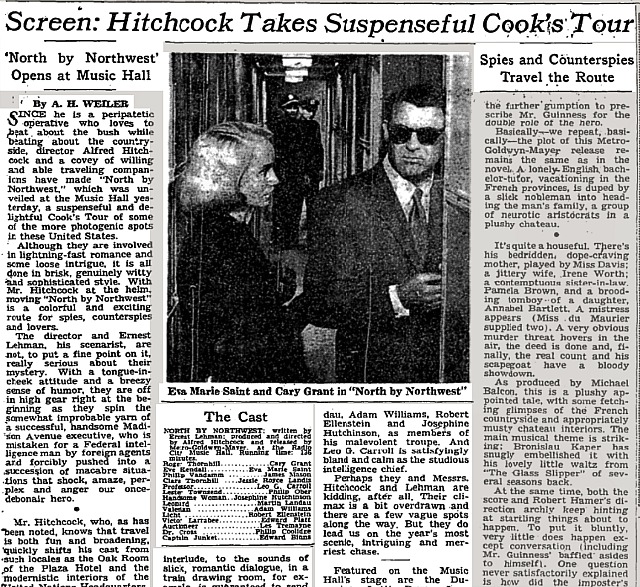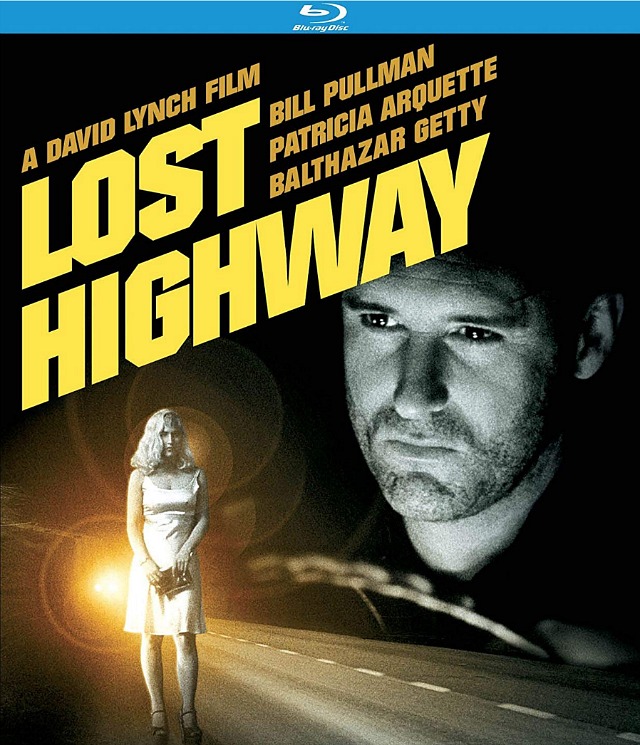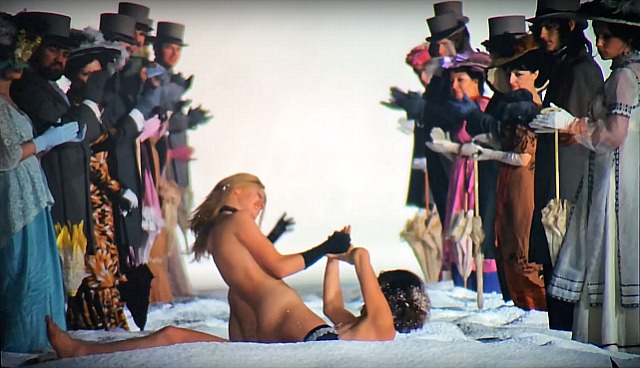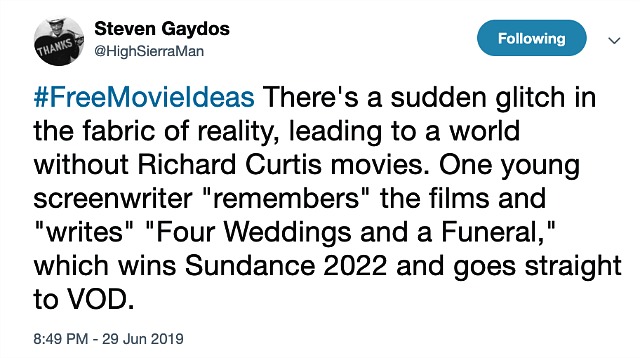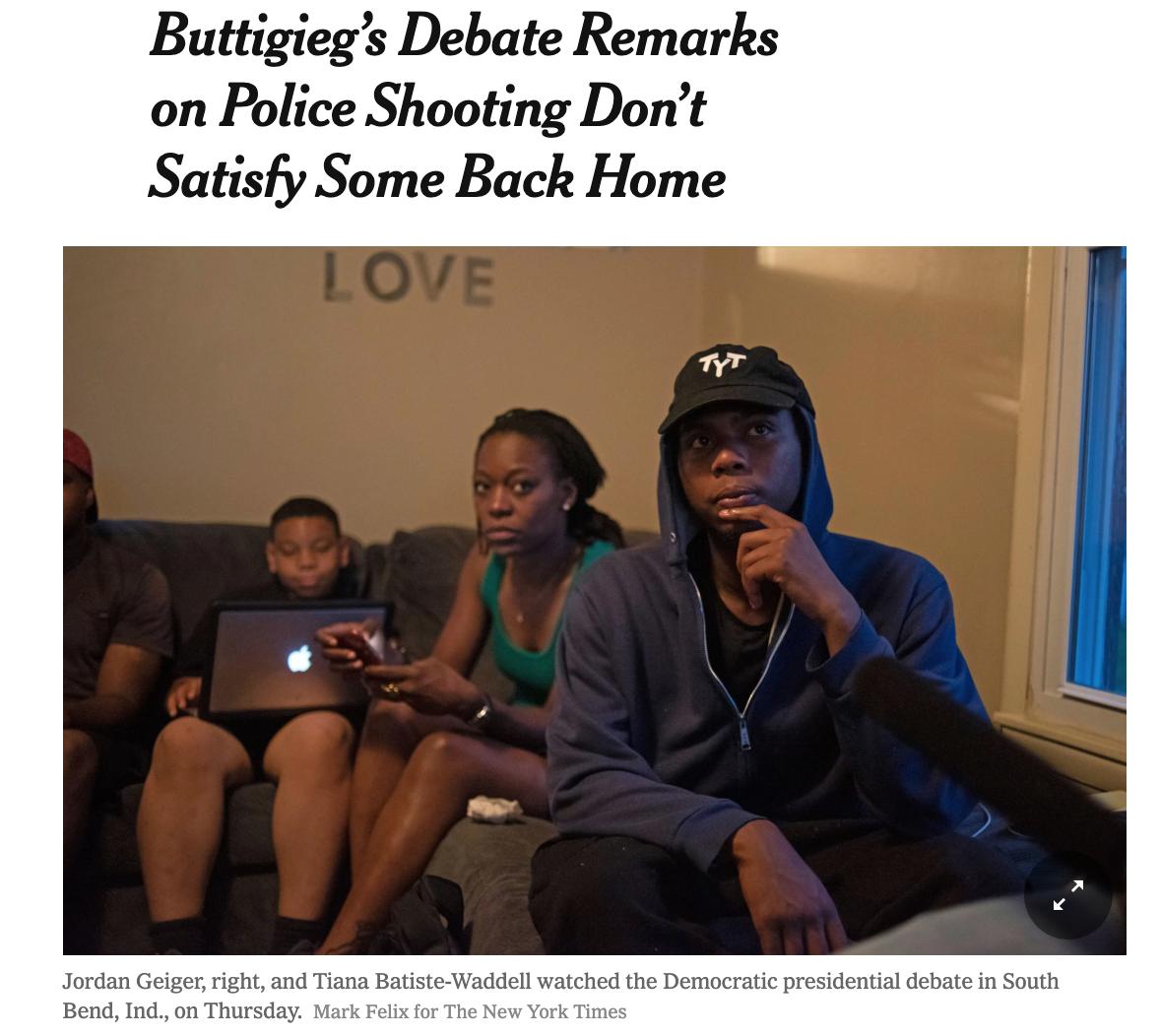Last night I finally caught Danny Boyle and Richard Curtis‘s Yesterday, which is mostly a likable but harmless so-whatter. Alternate title: “I Was A British Beatles Admirer Who Managed To Become Them When They Were Erased From Memory (and Managed to Live High On The Hog For A While Until I Was Overwhelmed By Guilt).” I actually found it mildly diverting in the early stages. But I can’t say I loved or even really “enjoyed” it all that much. Well, I did here and there. And the audience seemed happy.
I hated the fact that the producers chose only the most banal, saccharine and/or over-played Beatles standards to populate the soundtrack with. I despise “Let It Be.” All my life “The Long and Winding Road’ has made me want to throw up. If I never hear “A Hard Day’s Night” again, it’ll be too soon. (I liked it when young but it gradually wore out its welcome.) But I love “”Happy Just To Dance With You” — why didn’t they use that one? Or “Things We Said Today”? Or “A Day in the Life”? Or “Cry Baby Cry”? Or “Here, There and Everywhere” or “Good Day Sunshine”?
I did, however, like one thing about Yesterday. Tremendously, I mean. Around the two-thirds or three-quarters mark comes a scene that I hadn’t read about in reviews, and it totally blew my mind. Because of this one passage (and BE WARNED because I intend to discuss it, which will mean nothing because everyone is writing about it) I was suddenly very happy that I was watching Yesterday. Because of a certain fellow’s return to the planet earth.
Otherwise this Boyle-Curtis concoction kept boring or bugging me in little ways. I always feel put off when movies “try” to be charming or cute or huggable. I really hate it when they’re selling that shit. But Yesterday is passingly or momentarily saved from this self-defeating approach whenever the camera is on Himesh Patel, whose performance is — this is highly unusual — winningly one-note.
Patel plays Jack Malik, an adept singer-guitarist from northeastern England who becomes a worldwide phenomenon when the Beatles are suddenly erased from memory after some kind of cosmic EMP blackout, which allows Malik to begin performing the entire Beatles catalogue as his own songs because no one knows any differently. What I loved about Patel is that he plays almost every scene with the same vaguely glum, vaguely stunned “uhhm, wait, hold on…what the fuck?” expression. “One-note performance” is always a negative judgment, I know, but not this time. I seriously loved Patel in this thing, and I’m not being facetious. “This guy’s on my team!” I kept saying to myself.
Whenever a good thing happens to Jack, he kind of half-smiles but blends it in with a vaguely glum, vaguely stunned “uhhm, wait, hold on…what the fuck?” expression. Whenever something draining or dispiriting happens, he responds with what can best be described as a vaguely glum, vaguely stunned “wait, hold on…what the fuck?” expression. And so on and so forth. Nothing shakes him out of this default attitude about life, about everything.
In my head I began to believe that Patel was speaking to grumpsters like myself with this expression. He seemed to be saying “Look, I’m just playing this guy, right? I love the money and the promotional boost that this film is giving my career, but c’mon…this movie is piffle! And here I am sort of half-behaving in a piffly fashion on its behalf. Except I’m not because of my nonstop ‘what the fuck?’ expression. Which you understand.”
I could understand roughly 20% to 30% of the dialogue spoken by Lily James, who plays Jack’s manager and secret romantic admirer. She’s about as understandable as any British working-class character in a Ken Loach film, and before you start in with the cracks about my hearing understand that I’ve seen many British films in Cannes that were shown with English subtitles. There’s a reason for that.
